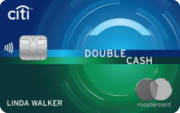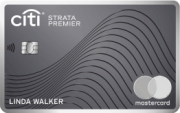The content on this page is accurate as of the posting date; however, some of the offers mentioned may have expired.

Credit is tight, so issuers raise their rates on most deals. All customers suffer, even those who's always had brilliant credit and gained the bank's trust and favor. Those with a shaky financial situation get the worst treatment and continuously see their cards' terms being tougher. In this situation, credit card debt grows to unmanageable level and requires instant settlement to prevent bankruptcy and loss of property.
Debt settlement, while being actively promoted to cardholders, hides some pitfalls and needs a cautious approach by those who seek debt relief without affecting their scores. Often, settlement does impact the scores but the extent of the impact depends on the provider of the service and on the way it all is performed.
Paying only a percentage of a credit card debt rather than the full amount owed is called debt settlement. People who cannot cope with a pile of high interest bill payments find debt settlement the best and the last option before declaring bankruptcy.
But not all cardholders go through the settlement safe. It depends on their individual situation and on what they aim at signing up for the service. If you are more than 90 days late on your account and there is no hope you can make at least a minimum payment soon, the bank or company chooses in favor of a rational approach.
So they agree to a debt settlement plan worked out by the settlement firm and allow you to pay part of debt without causing your score to get strongly damaged. This is really a good way to go by to get rid of an overload of debt and start afresh with a secured card or a card for bad credit.
The other situation, where you may see your credit score drop many points down, is when you apply for a debt settlement plan while being current on all your bills. Perhaps you do not like the interest and you cannot qualify for lower rate or 0% intro APR balance transfer credit card applications. Debt settlement firm can negotiate lower interest payments to the bank or even release you from part of the debt. In fact, you may reduce the amount owed by 60% if you're lucky with finding a reputable debt settlement company.
The bank sees no reason why you cannot make payments to pay back the full amount in the long run and is very reluctant to approve your debt settlement plan. That is what hurts your FICO scores.
Another important thing to know before you purchase a settlement plan is the process itself. After the enrollment fee, you are required to pay certain monthly amounts to the debt settlement company which collects your payments rather than disperses them among your creditors. The collection period may last 3 to 6 months before the company finally starts negotiating with the bank to settle the account. The catch here is while you pay to the debt settlement firm, the bank gets no payments, which is also reflected in your credit report, hurting the scores more.
Weigh all pros and cons before going into debt settlement. Your intention to save on card payments rather than to get from under a life-long debt mass may cost you dear.





